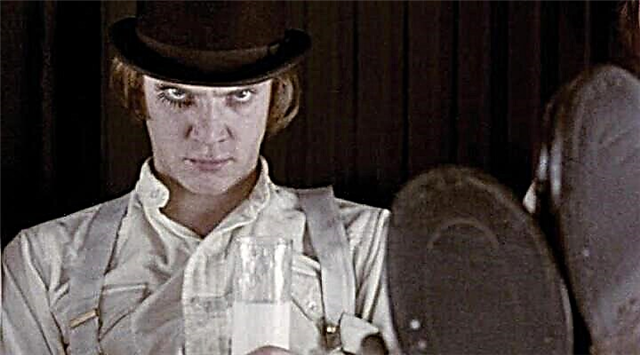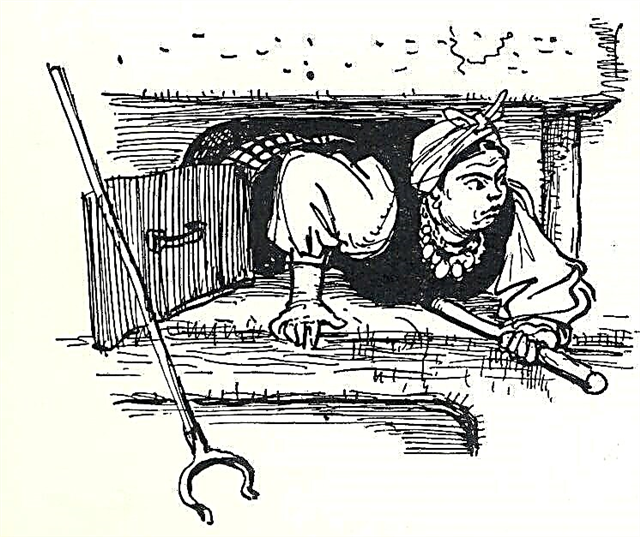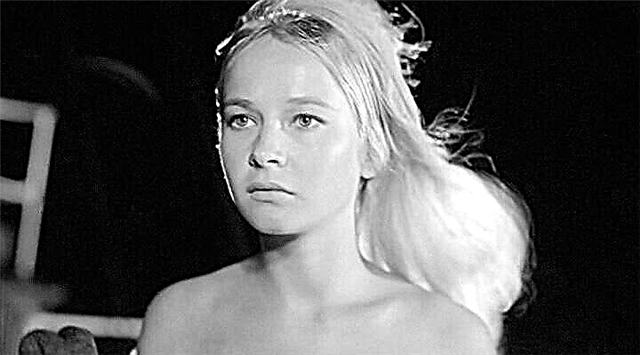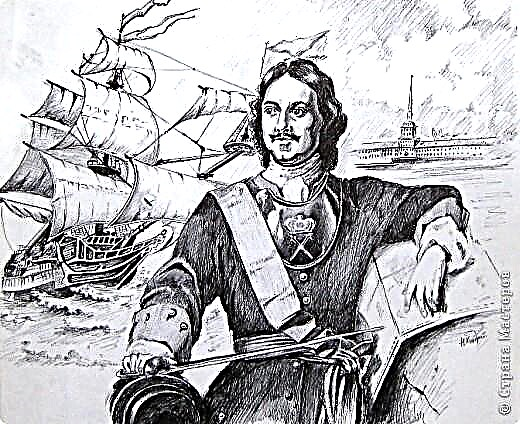Solicitor Derville tells the story of the loan shark Hobsek in the salon of the Viscountess de Granlier, one of the most notable and wealthy ladies in the aristocratic suburb of Saint Germain. One day, in the winter of 1829/30, she had two guests: the young handsome Count Ernest de Resto and Derville, who were received simply because he helped the housekeeper return the property confiscated during the Revolution.
When Ernest leaves, the Viscountess pronounces to Camille's daughter: one should not show such openness to the dear Count, for no decent family would agree to intermarry with him because of his mother. Although now she behaves impeccably, but in her youth caused a lot of gossip. In addition, she is of low descent - her father was a grain trader Gorio. But the worst part is that she squandered a fortune on her lover, leaving the children penniless. Count Ernest de Resto is poor, and therefore not a couple of Camille de Granlier.
Derville, sympathetic to lovers, intervenes in the conversation, wanting to explain to the viscountess the true state of affairs. He starts from afar: in his student years he had to live in a cheap hostel - there he met Gobsaek. Even then, it was a deep old man of very remarkable appearance - with a “moon face”, yellow eyes, like a ferret’s eyes, a sharp long nose and thin lips. His victims sometimes lost their temper, cried or threatened, but the moneylender always remained calm - it was a “bill of exchange man”, a “golden idol”. Of all the neighbors, he maintained relations only with Dervil, to whom he once revealed the mechanism of his power over people - gold rules the world, and a usurer owns gold. As a warning, he talks about how he collected debt from a noble lady - fearing revelations, this countess without hesitation handed him a diamond, for her lover received money on her bill. Gobsek guessed the future of the countess in the face of a handsome blond - this dandy, mott and player is able to ruin the whole family.
After graduating from law, Derville received the position of senior clerk in the office of the solicitor. In the winter of 1818/19, he was forced to sell his patent - and requested one hundred and fifty thousand francs for it. Hobseck loaned a young neighbor money, taking only thirteen percent from him “as a friend” - usually he took at least fifty. At the cost of hard work, Dervil managed to get even with debt in five years.
Once, a brilliant dandy, Count Maxim de Tray, begged Derville to bring him to Gobsiek, but the moneylender flatly refused to give a loan to a man who has three hundred thousand debts, and not a centime. At this moment, the carriage drove up to the house, the Count de Tray rushed to the exit and returned with an unusually beautiful lady - according to the description, Derville immediately recognized in her the countess who issued the bill four years ago. This time she mortgaged gorgeous diamonds. Derville tried to hinder the deal, but as soon as Maxim hinted that he was going to settle accounts with his life, the unhappy woman agreed to the enslaving terms of the loan.
After the lovers left, the countess's husband burst into Gobshek with a demand to return the mortgage - his wife did not have the right to dispose of family jewels. Dervil managed to settle the matter by the world, and the grateful moneylender gave the Count advice: to transfer to a reliable friend all his property through a fictitious sale transaction - this is the only way to save at least children from bankruptcy. A few days later, the count came to Derville to find out what his opinion was about Gobsec. The solicitor replied that in the event of an untimely death, he would not have been afraid to make Hobsek a guardian of his children, for there are two creatures living in this hunks and philosopher - vile and exalted. The count immediately decided to transfer all rights to the property to Gobsec, wanting to protect him from his wife and her greedy lover.
Taking advantage of the pause in the conversation, the Viscountess sends her daughter to bed - a virtuous girl does not need to know how far a woman who has crossed certain borders can reach. After Camilla’s departure, there’s no reason to hide the names - the story is about Countess de Resto. Derville, having not received a counter-receipt on the fictitious nature of the transaction, finds out that Count de Resto is seriously ill. The countess, feeling the catch, is doing everything to prevent the solicitor from her husband. The denouement begins in December 1824. At this point, the countess had already convinced Maxim de Tray of the villainy and broke up with him. She is so zealously caring for her dying husband that many are inclined to forgive her past sins - in fact, she, like a predatory beast, lies in wait for her prey. The count, unable to get a meeting with Dervil, wants to transfer documents to his eldest son - but his wife cuts him off this path, trying to affectionately influence the boy. In the last scary scene, the countess prays for forgiveness, but the count remains adamant. He dies that very night, and the next day, Gobsec and Derville arrive at the house. A terrible sight appears before their eyes: in search of a testament, the countess made a real rout in the office, not even being ashamed of the dead. Hearing the steps of strangers, she throws into the fire papers addressed to Dervil - the count’s property thereby undividedly passes into the possession of Hobsek.
The moneylender leased the mansion, and began to spend the summer in a noble manner - in his new estates. To all Derville’s pleas, take pity on the repentant countess and her children, he replied that misfortune is the best teacher. Let Ernest de Resto know the price of people and money - then it will be possible to return to his condition. Upon learning of the love of Ernest and Camille, Derville once again went to Gobshek and found the old man dying. The old hunks bequeathed all his wealth to the great-granddaughter of his sister - a public girl nicknamed “Spark”. He instructed his executor Dervil to dispose of the accumulated edible supplies - and the solicitor did discover huge stocks of rotten paste, moldy fish, rotted coffee. Towards the end of his life, Hobsek’s stinginess turned into mania - he didn’t sell anything, for fear of cheapening. In conclusion, Derville reports that Ernest de Resto will soon regain his lost state. The Viscountess replies that the young count must be very rich - only in this case can he marry Mademoiselle de Granlier. However, Camilla is not at all obliged to meet with her mother-in-law, although no entry has been ordered to the countess's parties - after all, she was received at Madame de Bosean's house.












